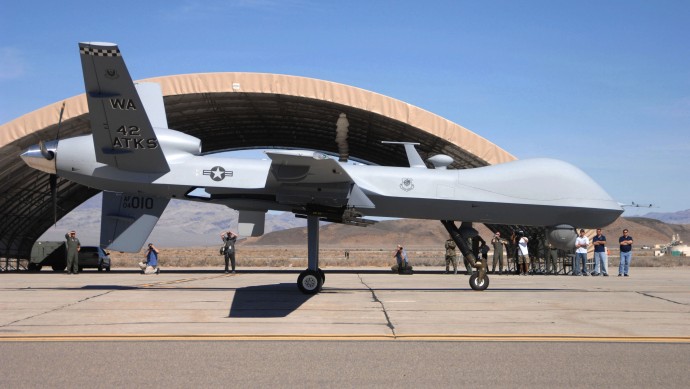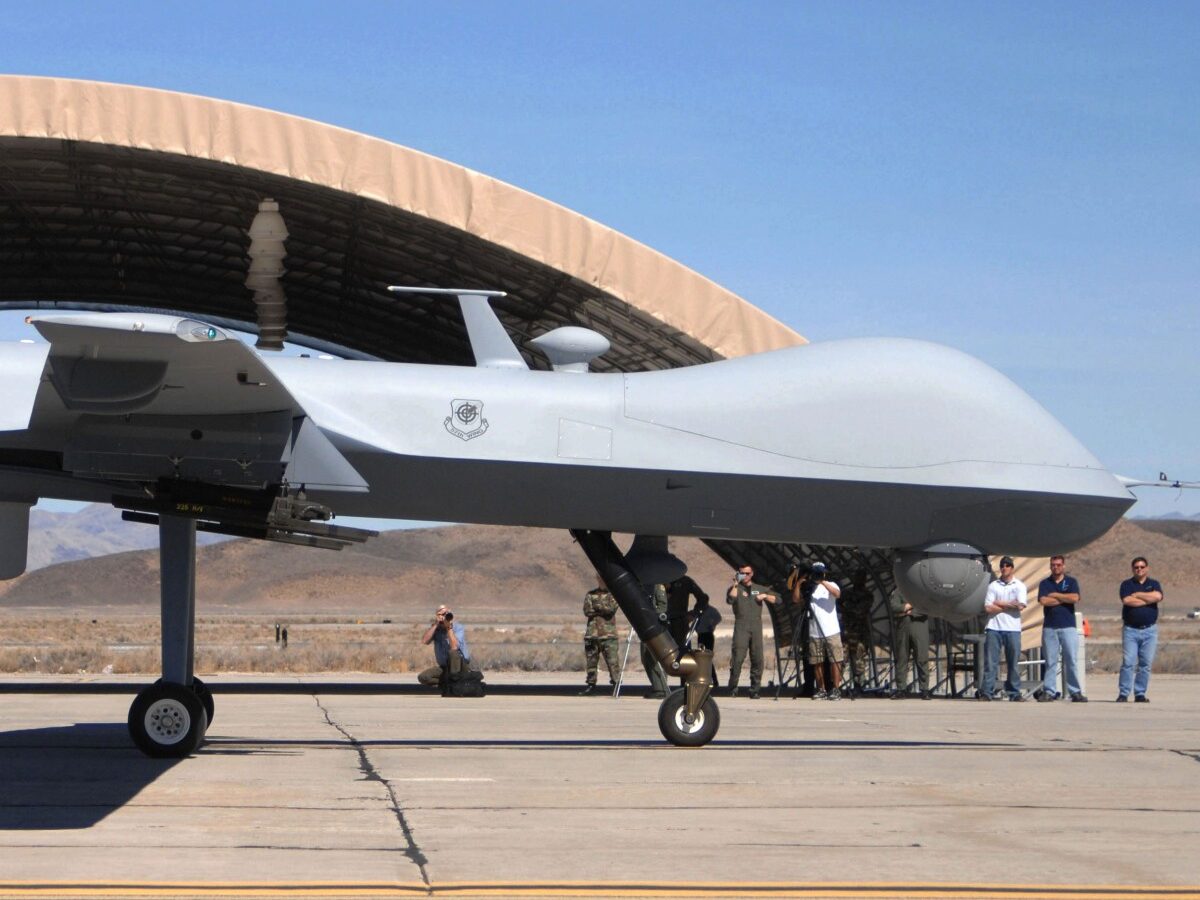
(MintPress) – At a time when the U.S. is seemingly winding down the war in Afghanistan and stepping back from military intervention, its military is preparing to enter a new era of war — one that doesn’t require Congressional approval and seeks to engage in military operations outside of combat zones, largely through the use of drones and special forces.
In a recent speech at the Center for New American Security, Defense Secretary Leon Panetta laid out the framework for America’s new anti-terrorism strategy in Africa. It’s not one likely to be explained thoroughly to the American people, as the nature of the mission is clothed in a national security cloak of secrecy.
“… To truly protect America, we must sustain and in some areas deepen our engagement in the world — out military, intelligence, diplomatic and development efforts are key to doing that,” Panetta said in his speech.
The new war will largely be carried out by Special Operations Forces (SOF), with plans to grow their presence to 72,000 by 2017, according to Panetta. As of now, 64,000 SOF forces are on the ground — up from 37,000 in 2001.
Special forces will only be part of the equation, though, as the U.S. military plans to increase its use of large-scale unmanned aerial planes, known as Predator drones. While giving specifics of the number of special operatives that will be working in the clandestine operations, Panetta was vague in his declaration regarding the number of drones, claiming only that the number will increase.
The premise of the new war is entrenched in rhetoric relating to counter-terrorism efforts. Panetta specifically addressed the attacks in Benghazi as motivation to increase the presence of the U.S. across Africa.
“We will do everything possible to ensure that such an attack never happens again. That means counterterrorism will continue as a key mission for our military and intelligence professionals as long as violent extremists pose a direct threat to the United States,” Panetta said during his speech.
In many cases, the extremists the U.S. is now attacking through drone wars are the very people once funded by the government to bring about the change America sought. In March, a coup, led by an officer who received training in the U.S., to overthrow Mali’s military went awry. While deemed a success, the events that followed created lawlessness and a hotbed for al-Qaida and other Islamist extremists who have since taken over. Now, the U.S. government is targeting those whom they helped overthrow the previously existing government.
What Panetta did not address was how the U.S. would strive to carry out a drone campaign that didn’t endanger the lives of innocent civilians. In Pakistan, where the U.S. has carried out heavy handed drone operations to wipe out terrorist operatives, it has taken the lives of more than 880 civilians since 2004, according to statistics gathered by the Bureau of Investigative Journalism.
If the goal of increased operations in Africa is to break down terrorist cells, the killing of innocent civilians could prove counterproductive to its mission, inciting more violence among those affected by the death of innocent civilians.
War Powers Resolution, US justification
While not declaring the mission in Africa a “war,” Panetta’s call for increased special operative troops and bombing campaigns resembles just that. The difference, however, is that such operations do not necessitate Congressional approval.
The Obama administration first showed its willingness to skirt around the War Powers Act during its military engagement in Libya in 2011.
The White House defended its actions in Libya as not needing Congressional approval, as they did not amount to hostilities and did not require significant soldier presence on the ground, according to White House spokesperson Jay Carney.
That same excuse could be used as a pardon in Africa, as, technically speaking, the troop force on the ground will be filled by special forces and bombing campaigns will be carried out by unmanned drones. But if that’s the future of combat, when will Congress require consultation before war?
The War Powers Resolution states that a president, acting as commander-in-chief, has powers to act without Congress only when facing specific situations, including those that relate to the rescue of Americans abroad, the protection of U.S. embassies, the suppression of civil insurrection and when acting within the realm of security.
Addressing this new era of war, Panetta told those gathered at the Center for a New American Security that the world is changing, claiming that peacetime is perhaps a thing of the past.
“As we transition into this new era, we will have to look at some very important priorities that will take on a greater urgency, particularly as we look at the second term of this administration and look at what are the challenges that we are going to be confronting,” Panetta said. “This is not like periods in the past where we come out of a period of war and the threats kind of diminish … and then everybody winds up cutting the hell of the defense budget. This is a period where, even as we come out of these ten years of war, we’re confronting some major issues.”
Panetta’s comments come at a time when Congress is debating whether or not to carry on with proposed cuts to the defense budget, with those in favor of such cuts claiming that level funding is not necessary, considering the U.S. is winding down the war in Afghanistan and has, technically, ended the war in Iraq. Panetta’s comments shine light on the reason why the budget will not likely end up on the chopping block — the wars are not over, they’re just changing.
Obama isn’t the only president to act outside of the War Powers Resolution. A story published by ProPublica in 2011 indicates that nearly every president has acted outside of the resolution. Even after George W. Bush received Congressional approval to wage war on Iraq, he states his opposition to the resolution, claiming it trampled on the constitutional rights of the commander-in-chief.
“As I made clear to congressional leaders at the outset, my request for congressional support did not, and my signing of this resolution does not, constitute any change in the long-standing positions of the executive branch on either the president’s constitutional authority to use the Armed Forces to defend vital U.S. interests or the constitutionality of the War Powers Resolution,” George W. Bush said following Congressional approval of the War in Iraq.
Drones, the new war
Drones have emerged in the American military as a method of carrying out operations remotely, creating a new definition of war and opening doors to inaccuracies that have caused the deaths of civilians and opened the doors for clandestine spy operations.
Without drone capabilities, the U.S. military would do what it’s done in the past — rely heavily on armed forces. Without the need, the military is able to carry on covert wars at greater scopes throughout the world, while keeping it somewhat behind-the-scenes in its home country.
And it’s not just America.
Even the U.N. has taken on the practice of using drones, most recently as a surveillance tool to monitor the conflict in the Republic of Congo. And while surveillance is said to be the main mission, the resolution authorizing their use doesn’t outlaw armed drones, which could be used to prevent imminent violence. While it potentially protects wartime casualties among peacekeepers and soldiers, it has the potential to create more harm than good.
Either way, it seems the U.S. involvement in the drone program is not likely to wane anytime soon. Both political parties seem to be on board with current Pakistani drone attacks, and Panetta has made it clear that drone use is key to future anti-terrorism operations. It fulfills the goal Panetta said he had of sustaining and deepening “engagement in the world.”


